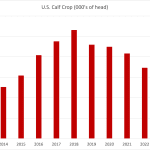The U.S. Commodity Futures Trading Commission has listened, and is taking action.
It announced steps June 3 to limit the power of commodity funds and assist American grain elevators and producers who are struggling to finance their hedges during a period of higher prices and expanding margin calls.
“The commission recognizes that although no single solution exists, there are several steps it can take to improve oversight of the futures markets and bring greater transparency and scrutiny to the types of traders in the marketplace, including large index traders,” said CFTC acting chair Walt Lukken in a news release.
Read Also

Pulse fractionation business expected to soon get a boost
Louis Dreyfus Company will soon be producing pea protein isolate at its new plant under construction in Yorkton
Farm groups and grain industry associations have pressured the regulator for months to control the waves of money rolling into agricultural markets from commodity funds.
In a recent report, The Globe and Mail estimated that the amount of fund money in commodity indexes has grown to $260 billion by March 2008 from $13 billion in 2003.
While not all of that has gone into agricultural futures, funds now dump significantly more cash into wheat, soybeans and canola contracts than they did a few years ago.
On April 21, the CFTC held a meeting to hear the concerns and ensure that agricultural markets were functioning properly.
In its recent decision, it announced six steps, including three of particular significance:
- More transparency – A new CFTC monthly publication on trader data for agricultural and other markets will start in July. There is also a proposal to routinely require more detailed information from index traders and swaps dealers in the futures markets.
- Limits on speculative trade – The CFTC has voted to withdraw proposed rule changes that would have increased the speculative position limits on certain agricultural futures contracts, and created a risk management hedge exemption using the federal speculative position limits for agricultural futures and option contracts.
- Credit help – The CFTC said it would work with agricultural lenders to look at the financing of margin levels, which has become more difficult for commodity merchandisers and producers.
Although no critics are clapping loudly, the American Farm Bureau described the commission’s plan as a good first step.
“Some of the changing of the limits on spec positions, the change in the reporting … those are real kind of things,” said Bob Young, chief economist of the bureau.
The CFTC’s acknowledgement that elevators have problems financing their operations is also progress, Young said.
“That’s potentially very important …. If you lose some of these elevators, it wouldn’t take too many of these elevators (closing) and you’d have a real problem on your hands.”
Another U.S. farm group, the National Farmer’s Union, was less supportive, but conceded that the CFTC’s intent has merit.
“(The) response from CFTC takes the first step to ensuring markets are properly functioning, but more needs to be done to ensure markets are fully transparent,” said NFU president Tom Buis.
Dan Basse, owner of an agricultural research service in Chicago, was less diplomatic.
“There’s really no bite from this dog in terms of regulatory changes that would make any difference in the markets,” said Basse, president of AgResource Co.
Basse said he’s not as critical of the index funds as he was three months ago. He’s more accepting of the idea that the markets are now different from their traditional role.
“It looks to me like the market is still working. Maybe these funds pushed prices higher and lower … but agriculture has changed, and with it, so will the markets,” he said.
Instead of regulation, what’s needed is more credit and more capital to help the farm trade adjust to the new reality of higher prices and more volatility, he said.
“Because beans are at $14, corn’s at $6 and wheat’s at $8, the daily movements seem a lot harsher.”
To adapt, Basse said, farmers and elevator managers need to choose their friends wisely.
“Anybody who isn’t friendly with his banker, needs to be.”















